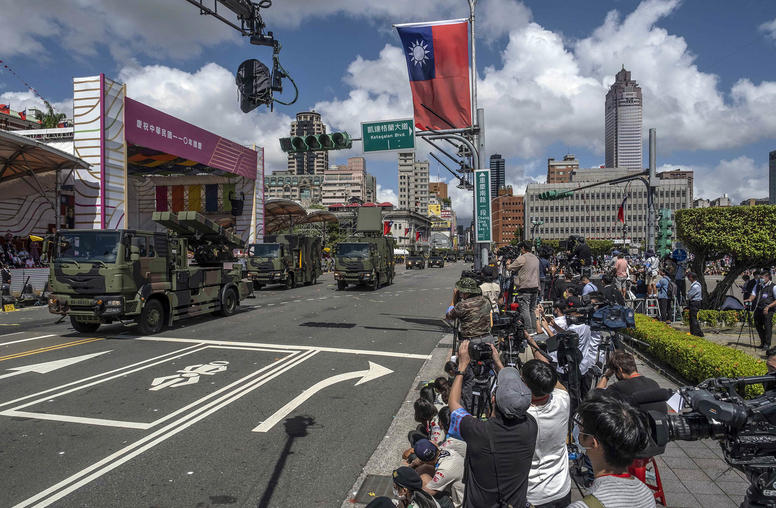 Russia
Russia
Putin’s decision to invade Ukraine shattered decades of international efforts to preserve peace in Europe. Almost overnight, Russia has gone from an important actor seeking to upend the international system to a pariah state, the subject of devastating economic sanctions and diplomatic isolation. And Putin’s growing willingness to employ indiscriminate violence in service of his geopolitical ambitions makes it even more crucial for the international community to remain unified in pressuring Moscow for an end to the bloodshed. USIP is committed to developing a new portfolio of analysis and research that addresses the threat Russia poses to both Ukraine’s sovereignty and the rules-based international system.
Featured Research & Analysis

Russia’s Nuclear Doctrine Amendments: Scare Tactics or Real Shift?
Since the onset of Russia's full-scale invasion of Ukraine on February 24, 2022, Moscow has relied on nuclear coercion and compellence to shape Western decision-making. On November 19, 2024, President Vladimir Putin approved amendments to Russia's nuclear doctrine, signaling a lowered threshold for nuclear first use. While the 2024 amendments introduce new details to possible scenarios for Russia’s use of nuclear weapons, they do not constitute a significant departure from previous doctrine.

Can India Advance Peace in Ukraine?
Since the start of Russia’s war in Ukraine, India has worked to protect its strategic relationship with Russia while maintaining its burgeoning ties with the United States and Europe. India’s balancing act was on display earlier this year when Prime Minister Narendra Modi visited Russia in July and made a historic trip to Ukraine the following month. Modi has portrayed a neutral stance on the Ukraine war and positioned India as a key player in any potential peace process.

Donald Jensen on the War in Ukraine’s Trajectory
As Ukraine considers the “politically loaded” question of whether to lower the age of military mobilization, Putin increasingly sees the war “not just as a land grab, but as a civilizational battle between Russia and the West,” says USIP’s Donald Jensen, adding: “We should not think that the war is anything close to being settled.”
Current Projects

USIP’s Work on Taiwan
Intensifying strategic competition has left U.S.-China ties at a historic low, and the resulting geopolitical tensions have turned Taiwan into a potential flashpoint for a military confrontation between the two great powers. Amid this complex diplomatic landscape, USIP is working to improve U.S. and Taiwanese officials’ decision-making during a potential crisis by convening “peace games” and “tabletop exercises”; to build a deeper understanding of China’s coercive strategies and capabilities; and to help policymakers develop strategies to deter Beijing from taking military action in the Taiwan Strait.

The Challenge of China and Russia
USIP’s China-Russia Axis project aims to capture the shifting nature of collaboration between China and Russia across military, economic and diplomatic arenas — as well as any divergences in how the two countries act strategically.